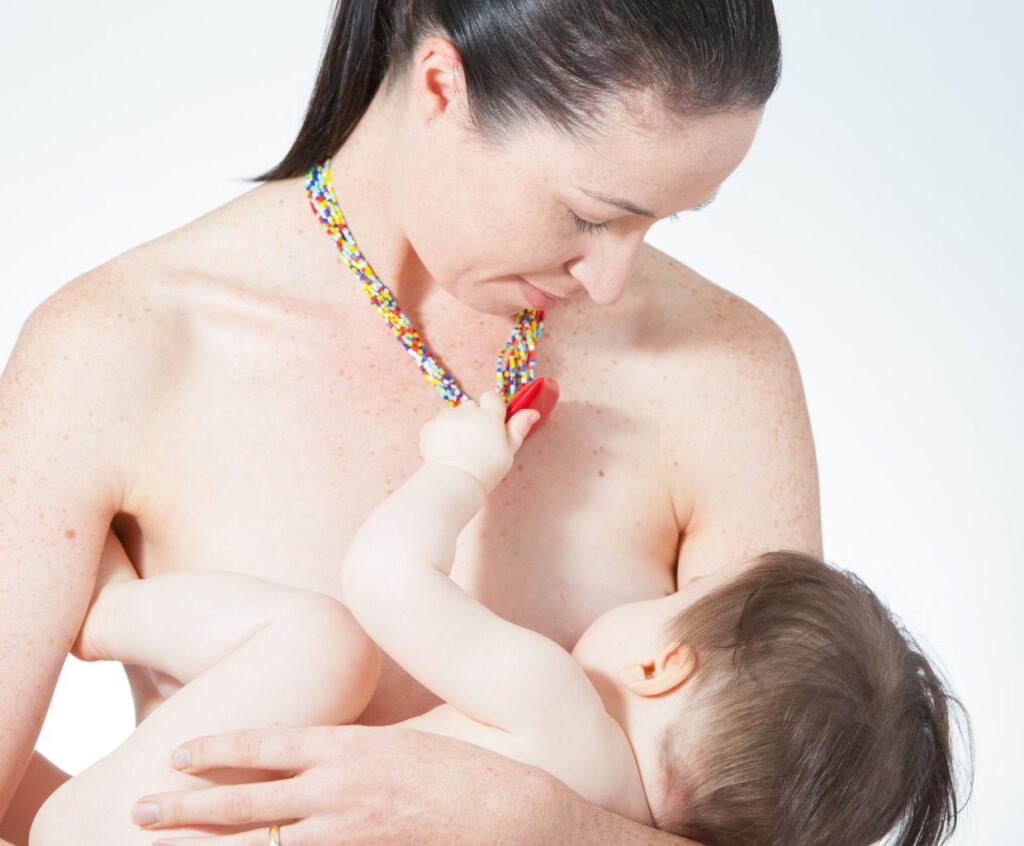The Benefits and Importance of Extended Breastfeeding Beyond 6 Months
Extended breastfeeding refers to continuing to breastfeed a child beyond the age of 6 months, ideally up to 2 years or even longer.
While breastfeeding is commonly associated with the first few months of a baby’s life, there are numerous benefits and reasons why extended breastfeeding can be beneficial for both the child and the mother.
Benefits for the Child
Extended breastfeeding offers a range of benefits for the child’s overall health, growth, and development:
-
- Enhanced Immunity: Breast milk contains vital antibodies that help strengthen the child’s immune system, protecting them from various illnesses and infections.
-
- Improved Cognitive Development: The unique composition of breast milk promotes optimal brain development, leading to improved cognitive abilities and higher IQ levels.
-
- Reduced Risk of Chronic Diseases: Extended breastfeeding has been linked to a decreased risk of developing chronic conditions such as obesity, diabetes, asthma, and specific allergies later in life.
-
- Emotional Security: The emotional bond formed during extended breastfeeding provides a sense of security and comfort to the child, promoting healthy emotional development.
Benefits for the Mother
Extended breastfeeding also offers advantages for the mother’s physical and emotional well-being:
-
- Reduced Risk of Breast and Ovarian Cancer: Prolonged breastfeeding has been associated with a decreased risk of developing breast and ovarian cancer in mothers.
-
- Natural Contraceptive: Breastfeeding can act as a natural method of contraception by suppressing ovulation, though it is not foolproof and should not be relied upon solely for birth control.
-
- Promotes Postpartum Weight Loss: Breastfeeding burns calories, aiding in many mothers’ gradual return to pre-pregnancy weight.
-
- Emotional Bonding: The intimate connection established through extended breastfeeding fosters a solid emotional bond between the mother and child.
How does extended breastfeeding impact the bond between mother and child?
Extended breastfeeding can positively impact the bond between mother and child. Breastfeeding creates a solid physical and emotional connection between the two, as it involves close physical contact, skin-to-skin contact, and the release of hormones like oxytocin, which promotes feelings of love and attachment.
Extended breastfeeding allows for a continuation of this bonding experience as the mother and child continue to have regular physical contact and connection. This can further strengthen the emotional bond between them.
Moreover, breastfeeding beyond infancy can provide comfort and security to the child, which helps build trust and foster a sense of safety and attachment. The child feels nurtured and loved, which can contribute to their emotional well-being and develop a secure attachment style.
Extended breastfeeding promotes responsive parenting, as the mother attests to the child’s needs and cues. This increased responsiveness can deepen their bond, as the child feels understood and supported by their mother.
Additionally, extended breastfeeding allows for frequent intimate interactions and eye contact, essential for building a strong emotional bond. These interactions help the child feel seen and valued, strengthening their connection to their mother.
Overall, extended breastfeeding can enhance the bond between mother and child by providing ongoing physical and emotional closeness, promoting attachment and trust, and creating a nurturing and responsive caregiving relationship.
What are the benefits of extended breastfeeding?
Some potential benefits of extended breastfeeding include:
1. Enhanced immune system: Breast milk contains antibodies that help protect against infections and diseases, so continued breastfeeding can provide ongoing protection for the child.
2. Nutritional benefits: Breast milk provides essential nutrients and vitamins to support the child’s growth and development.
3. Emotional bonding: Extended breastfeeding can help strengthen the emotional bond between mother and child, promoting a sense of security and comfort.
4. Cognitive development: Some studies suggest that extended breastfeeding may improve children’s cognitive development.
5. Reduced risk of certain health conditions: Breastfeeding has been linked to a lower risk of conditions such as asthma, obesity, diabetes, and certain types of cancer.
6. Convenience and cost-effectiveness: Breastfeeding can be more convenient and cost-effective than formula feeding, as it eliminates the need to prepare and purchase formula.
It is important to note that the decision to breastfeed and the duration of breastfeeding is a personal choice and may vary depending on individual circumstances and preferences.
How long should I breastfeed my baby?
The American Academy of Pediatrics recommends exclusive breastfeeding for the first six months of a baby’s life and continuing to breastfeed for at least the first year or longer if both the mother and baby desire.
However, every mother and baby is different, so discussing your specific breastfeeding goals and plans with your healthcare provider is essential.
Extended Breastfeeding Beyond 6 Months – Conclusion
Extended breastfeeding beyond six months can provide numerous benefits for both the child and the mother. It offers enhanced immunity, improved cognitive development, reduced risk of chronic diseases, emotional security for the child, reduced risk of cancer, natural contraception, postpartum weight loss, and emotional bonding for the mother.
However, the decision to breastfeed beyond the recommended six months lies with the individual mother and should be based on her comfort, lifestyle, and her child’s needs.


